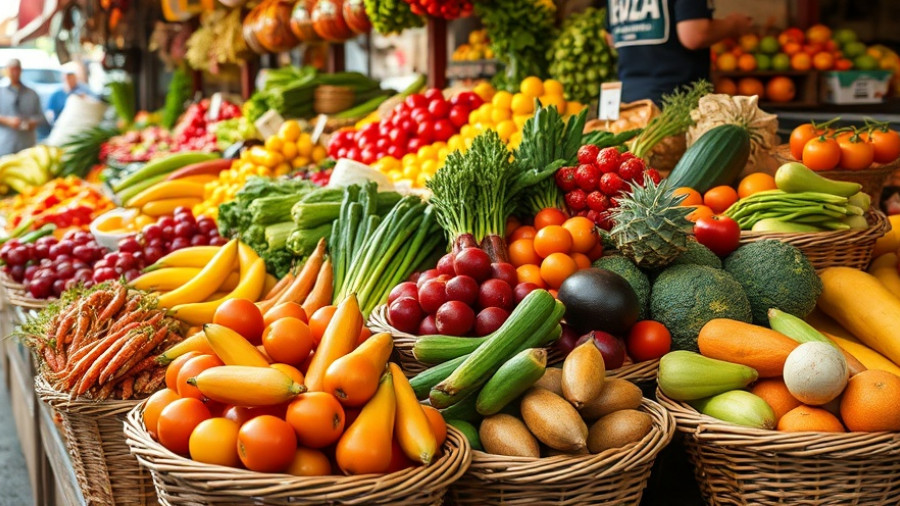
The Looming Crisis: Food Security in Nigeria
As the world faces a potential future where warfare may revolve around essencial resources like food and water, Nigeria stands at a critical crossroads. Recently, stakeholders including food security experts, government officials, and development partners gathered at the Nigerian Institute for International Affairs in Lagos for World Food Day. They discussed a vital topic: the need for Nigeria to transform its food security strategy into a robust food sovereignty model that not only nurtures its growing population—projected to be the third largest globally by 2050—but also empowers its agricultural sector.
In 'World Food Day: Stakeholders Urge Stronger Action for Nigeria’s Food Security,' the discussion dives into the critical challenges of food security in Nigeria, exploring key insights that sparked deeper analysis on our end.
Food Security: A National Imperative
Governor Omar Bago of Niger emphasized a crucial point: "no nation can be great without food security." In an era where inflation and food shortages plague Nigeria, the call for strong action has never been clearer. The notion of food security encompasses not only the ability to produce sufficient food but also to ensure its affordability for the populace. Bago further articulated that achieving food sovereignty—control over one's own food production—is central to national independence. Without it, Nigeria risks falling into a dependency that could make it vulnerable to external pressures in an increasingly competitive global landscape.
Transitioning From Discussions to Action
The messages heard during the event were unified in advocating for significant investments in agriculture. Experts underscored the necessity of improving infrastructure, irrigation systems, and storage facilities. They also acknowledged that farming should expand beyond mere crop production to include livestock, aquaculture, and sustainable practices that promote ecological balance.
Investing in the Future: A Comprehensive Approach to Agriculture
To develop a resilient agricultural sector, Nigeria must invest in high-quality seeds, modern farming equipment, and relevant agricultural chemicals. The current situation reflects a dire need for innovation; many farmers lack access to essential tools that would enhance productivity. The integration of both public and private sector efforts is imperative, creating a synergistic environment that fosters growth and sustainable development.
Implications for National Development
Investing in sustainable agriculture not only boosts food production but also contributes to the overall stability and economic strength of Nigeria. Without robust action, the country risks facing mounting challenges that could undermine its security and governance, especially in rural areas plagued by insecurity. Stakeholders are therefore urged to move beyond policy frameworks to tangible actions that can revive the agricultural sector.
The Path Forward: A Collective Call to Action
Nigeria's trajectory toward achieving food sovereignty hinges on the collective responsibility of all its stakeholders, from farmers to government entities. As discussions on food security intensify, the time for decisive action is now. Investing in agriculture not only ensures food availability but also upholds national security and catalyzes economic growth for future generations.
 Add Row
Add Row  Add
Add 


Write A Comment